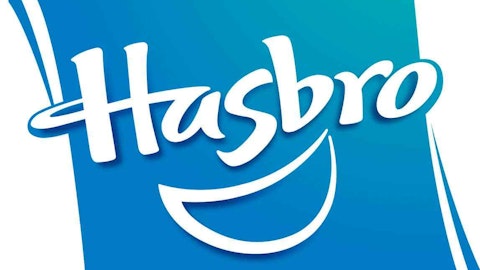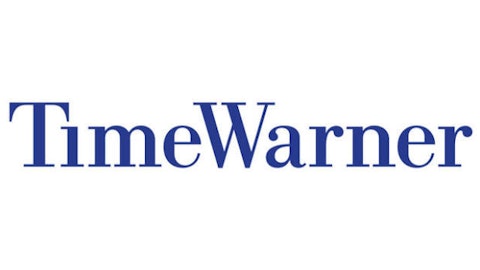Comcast Corporation (NASDAQ:CMCSA) can also do the same by building new rides centering on present and future Universal movies and television shows like the new Transformers: The Ride-3D set to open in summer 2013. Comcast can also leverage it’s television shows such as Revolution and BattlestarGalactica into new theme parks, lines of merchandise, etc.
Currently, Disney and Comcast trade at just 20 times earnings versus SeaWorld Entertainment Inc (NYSE:SEAS)’s 36 times earnings. The cheaper valuations of both companies mean better potential for their shareholders.
| Company | Cash (in thousands) |
|---|---|
| SeaWorld | $45,675.00 |
| Cedar Fair | $78,830.00 |
| Disney | $6, 110,000.00 |
| Six Flags | $629,208.00 |
| Comcast’s NBC Universal | $5,921,000.00 |
*Compiled from SEC filings
Income and expenses
“Our substantial leverage could adversely affect our ability to raise additional capital to fund our operations, limit our ability to react to changes in the economy or our industry, expose us to interest rate risk to the extent of our variable rate debt and prevent us from meeting our obligations under our indebtedness.” -Prospectus, page 24
As you can see in the table below, Seaworld’s remaining $1.6 billion in debt after a $177 million pay down (using most of its IPO proceeds) calculates to a jaw dropping 356%. Seaworld’s times interest earned, defined as the ratio of operating income to interest expense, comes to 2. Seaworld stands on thin ice in terms of margin of safety.
Disney lies on the opposite end of the spectrum with its operating income exceeding interest expense by about 24 times. SeaWorld Entertainment Inc (NYSE:SEAS)’s exposure to variable interest debt leaves it vulnerable to any increase in interest rates from historical lows.
Macroeconomic conditions or an unexpected drop in cash flow from things such as negative media bias surrounding the death of a SeaWorld Entertainment Inc (NYSE:SEAS) trainer could impact this company’s ability to pay its interest payments.
| Company | Long-term debt to equity | Times interest earned |
|---|---|---|
| SeaWorld | 356%* | 2 |
| Cedar Fair | 962% | 2 |
| Disney | 25% | 24 |
| Six Flags | 156% | 4 |
| Comcast’s NBC Universal | 35% | 6 |
*Compiled from SEC filings
*Estimated after use of IPO Proceeds
Post IPO
“Affiliates of The Blackstone Group L.P. (NYSE:BX) control us and their interests may conflict with ours or yours in the future.” –Prospectus, page 27
Private equity firm Blackstone originally bought Seaworld from Anheuser-Busch InBev NV (ADR) (NYSE:BUD) for roughly $1 billion. After the IPO, it still retains more than 60% of the company. SeaWorld paid $600 million in dividends to The Blackstone Group L.P. (NYSE:BX) over the past couple of years, representing one of the reasons for the current minuscule cash balance.
The relationship between Blackstone and Seaworld remains so intertwined that it’s listed as a conflict of interest on the prospectus. For example, more than $47 million dollars of IPO proceeds will go toward a “one-time payment to an affiliate of Blackstone in connection with the termination of the 2009 advisory agreement.”
In addition, Blackstone affiliates own part of Seaworld’s debt. In other words, all of the IPO proceeds will benefit Blackstone and its affiliates/partners instead of Seaworld itself other than the reduction of Seaworld’s debt.
What will keep The Blackstone Group L.P. (NYSE:BX) from taking actions beneficial to only itself over the outside shareholders in Seaworld? Already, Seaworld promises $0.20 per share per quarter in dividends. Could this be motivated by Blackstone? It’s in your best interest to watch the relationship between Seaworld and Blackstone.
“We may be unsuccessful in implementing required internal controls over financial reporting.” – Prospectus, page 33
One shocking risk listed in SeaWorld’s prospectus lies in that fact that it uncovered “significant deficiencies” in its internal controls during 2011 and 2012. Of course it was a privately held subsidiary of Blackstone then, and surely the company is taking steps to correct it now that the SEC will be watching; however, it raises the question of whether the company can maintain proper controls as a publicly-traded company in the future.
The takeaway is this: stay away from SeaWorld Entertainment Inc (NYSE:SEAS) as an investment as there are better fish in the sea of investing (pun intended). Low cash balances, high debt with variable interest rates, conflicts of interest with its holding company Blackstone, and the disturbing rash of deficiencies in its internal controls all spell trouble. The 24% run on its first day of trading may disappear in an instant.
The article 5 Risks That Investors in This Theme Park Should Worry About originally appeared on Fool.com is written by William Bias.
Copyright © 1995 – 2013 The Motley Fool, LLC. All rights reserved. The Motley Fool has a disclosure policy.

